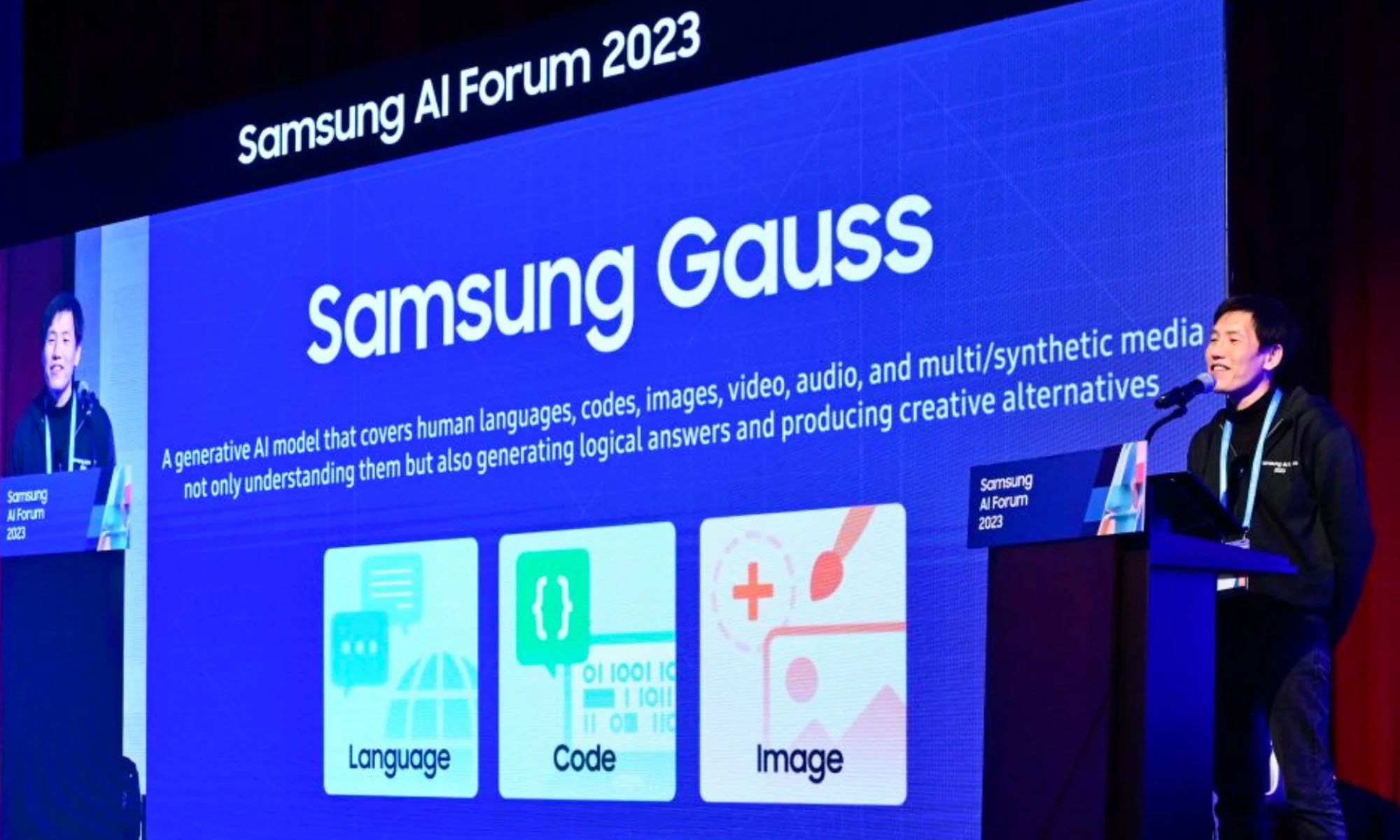News
Samsung Unveils ChatGPT Alternative Called Gauss
The generative AI model can create text, code and images.

Samsung has unveiled its own generative AI model, known as Samsung Gauss. The ChatGPT rival has been developed by the company’s research division, and is named after mathematician Carl Friedrich Gauss, a pioneer of AI and machine learning.
The new tool will consist of three distinct elements:
- Samsung Gauss Language
- Samsung Gauss Code
- Samsung Gauss Image
Gauss Language is a large language model that functions much like ChatGPT. The tool can understand human language and answer questions while also helping users write and edit emails, translate languages, and summarize text documents. Samsung plans to incorporate Gauss Language into its range of smartphones, tablets, and laptops to increase productivity.
Gauss Code is a tool that will help developers to write code more quickly. Samsung explained that the AI model will support “code description and test case generation through an interactive interface”.
Gauss Image, as the name suggests, is an image generation and editing tool that can also be used for tasks such as creating high-resolution images from older, low-resolution copies.
Samsung has revealed that Gauss is already being used internally by staff and will be available to public users “in the near future”. In addition, the tech company has created an AI Red Team to monitor potential AI security, privacy, and ethical issues.
Also Read: Top 10 Best Freelance Platforms In The Middle East
“We will continue to support and collaborate with the industry and academia on generative AI research,” said Daehyun Kim, executive vice president of the Samsung Research Global AI Center, at the AI forum.
Samsung’s generative AI announcement comes seven months after the company issued a temporary ban on the tools for company-owned devices — including ChatGPT and Google Bard — after a serious internal data leak earlier in 2023.
News
Rabbit Expands Hyperlocal Delivery Service In Saudi Arabia
The e-commerce startup is aiming to tap into the Kingdom’s underdeveloped e-grocery sector with a tech-first, locally rooted strategy.

Rabbit, an Egyptian-born hyperlocal e-commerce startup, is expanding into the Saudi Arabian market, setting its sights on delivering 20 million items across major cities by 2026.
The company, founded in 2021, is already operational in the Kingdom, with its regional headquarters now open in Riyadh and an established network of strategically located fulfillment centers — commonly known as “dark stores” — across the capital.
The timing is strategic: Saudi Arabia’s online grocery transactions currently sit at 1.3%, notably behind the UAE (5.3%) and the United States (4.8%). With the Kingdom’s food and grocery market estimated at $60 billion, even a modest increase in online adoption could create a multi-billion-dollar opportunity.
Rabbit also sees a clear alignment between its business goals and Saudi Arabia’s Vision 2030, which aims to boost retail sector innovation, support small and medium-sized enterprises, attract foreign investment, and develop a robust digital economy.
The company’s e-commerce model is based on speed and efficiency. Delivery of anything from groceries and snacks to cosmetics and household staples is promised in 20 minutes or less, facilitated by a tightly optimized logistics system — a crucial component in a sector where profit margins and delivery expectations are razor-thin.
Despite the challenges, Rabbit has already found its stride in Egypt. In just over three years, the app has been used by 1.4 million customers to deliver more than 40 million items. Revenue has surged, growing more than eightfold in the past two years alone.
Also Read: Top E-Commerce Websites In The Middle East In 2025
CEO and Co-Founder Ahmad Yousry commented: “We are delighted to announce Rabbit’s expansion into the Kingdom. We pride ourselves on being a hyperlocal company, bringing our bleeding-edge tech and experience to transform the grocery shopping experience for Saudi households, and delivering the best products – especially local favorites, in just 20 minutes”.
The company’s growth strategy avoids the pitfalls of over-reliance on aggressive discounting. Instead, Rabbit leans on operational efficiency, customer retention, and smart scaling. The approach is paying off, having already attracted major investment from the likes of Lorax Capital Partners, Global Ventures, Raed Ventures, and Beltone Venture Capital, alongside earlier investors such as Global Founders Capital, Goodwater Capital, and Hub71.






















